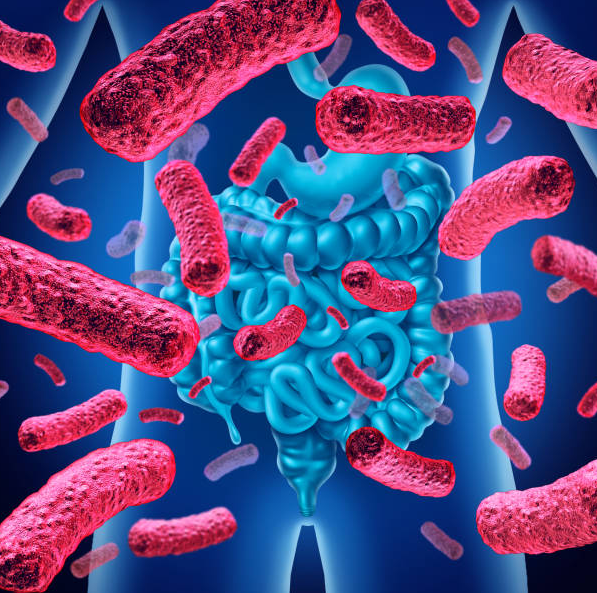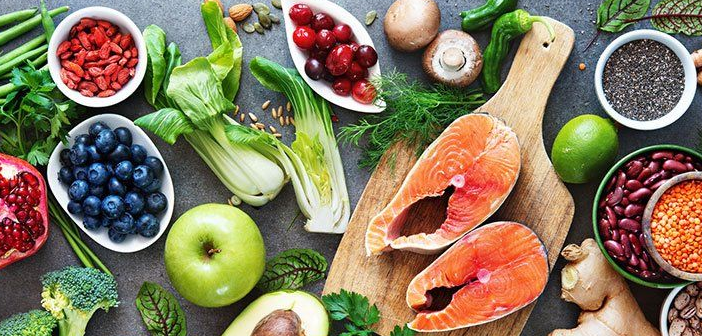Decoding the Impact of Diet on Gut Microbiota: Implications for Human Health and Practical Tips for Dietary Choices
Uncover the profound impact of your dietary choices on gut microbiota and overall health. This article delves into a groundbreaking study that reveals how different foods can shape your gut microbiome, influencing everything from digestion to immunity and even longevity.

Introduction
The human gut is a bustling metropolis of microorganisms, collectively known as the gut microbiome. This complex ecosystem plays a crucial role in our overall health, influencing everything from digestion to immunity, and even our mental health. Recent research has shed light on how our diet can shape this microbiome, and in turn, impact our health. This article delves into a comprehensive study titled "Influence of diet on the gut microbiome and implications for human health," providing a detailed analysis of its findings, strengths, limitations, and implications for future research. Furthermore, it offers practical dietary advice based on the study's findings.
The Study and Its Findings
The quest for understanding the intricate relationship between our diet, gut microbiome, and health has led to significant strides in the field of nutritional science. A pivotal study in this realm is the 2017 research titled "Influence of diet on the gut microbiome and implications for human health," conducted by a team of researchers led by Rasnik Singh, Hsin-Wen Chang, and Di Yan.
This study underscores the significant role the intestinal microbiome plays in modulating the risk of several chronic diseases, including inflammatory bowel disease, obesity, type 2 diabetes, cardiovascular disease, and cancer. It further highlights the crucial role diet plays in shaping the microbiome, with dietary alterations capable of inducing large, temporary microbial shifts within 24 hours.
The researchers systematically evaluated the effects of several common dietary components on intestinal microbiota. They found that the consumption of specific types of food produces predictable shifts in existing host bacterial genera. Furthermore, the identity of these bacteria affects host immune and metabolic parameters, with broad implications for human health.
Findings Breakdown
Based on these findings, it's clear that our dietary choices can have a profound impact on our gut microbiome and, consequently, our health. Here are some practical tips for dietary choices:
- Diversify Your Diet: A diverse diet rich in whole foods like fruits, vegetables, legumes, and whole grains can promote a diverse gut microbiota, which is generally associated with good health.
- Limit Artificial Sweeteners: While the study does not provide a detailed analysis of artificial sweeteners, other research suggests that they can negatively impact gut microbiota. Therefore, it may be beneficial to limit their intake.
- Consider Probiotics and Prebiotics: Probiotics (beneficial bacteria) and prebiotics (food for these bacteria) can help maintain a healthy gut microbiome. Foods rich in probiotics include yogurt, kefir, and fermented foods, while prebiotics are abundant in many fruits, vegetables, and whole grains.

Limitations and Further Research
However, the study is not without its limitations. It primarily relies on observational studies and short-term feeding trials, which may not fully capture the long-term effects of diet on the microbiome. Additionally, the study does not provide a detailed analysis of the impact of artificial sweeteners on the microbiome, which would be relevant for understanding their potential health effects.
The study concludes that while the microbiome of a healthy individual is relatively stable, gut microbial dynamics can be influenced by host lifestyle and dietary choices. However, more research is needed to fully understand these relationships and their implications for disease prevention and treatment.
For further study, it would be beneficial to conduct more long-term, controlled feeding trials to better understand the impact of specific dietary components, including artificial sweeteners, on the gut microbiome and human health.
Conclusion
The study provides valuable insights into the complex interplay between diet, gut microbiome, and health. As we continue to unravel these complexities, it is hoped that we will be able to harness this knowledge to develop effective strategies for healthpromotion and disease prevention.
Please note that while these dietary tips are based on scientific research, individual responses to diet can vary. It's always a good idea to consult with a healthcare provider or a registered dietitian before making significant changes to your diet.
Singh, R., Chang, H-W., Yan, D., Lee, K., Uçmak, D., Wong, K., Abrouk, M., Farahnik, B., Nakamura, M., Zhu, T., Bhutani, T., & Liao, W. (2017). Influence of diet on the gut microbiome and implications for human health. Journal of Translational Medicine, 15, 73. DOI: 10.1186/s12967-017-1175-y




